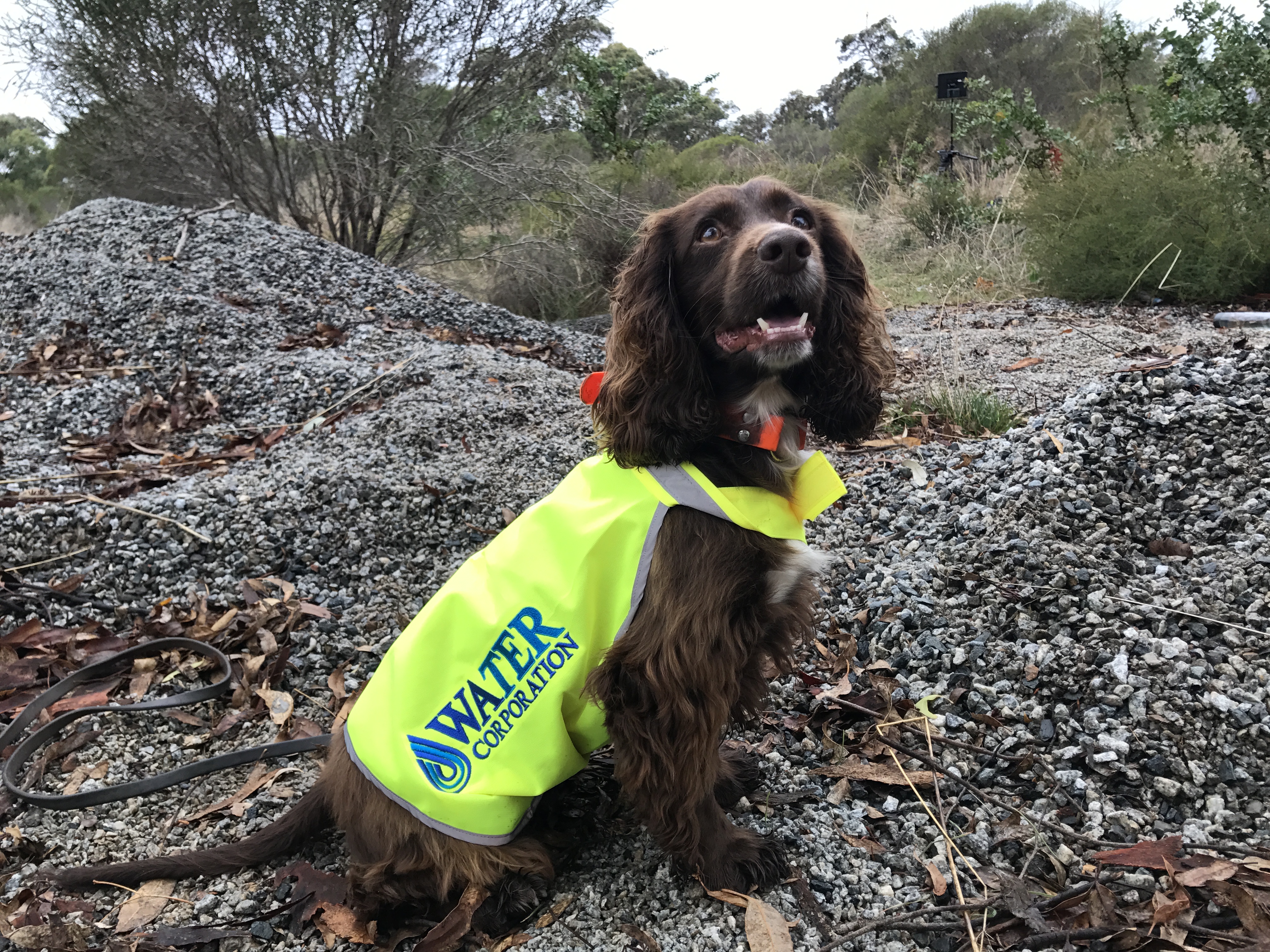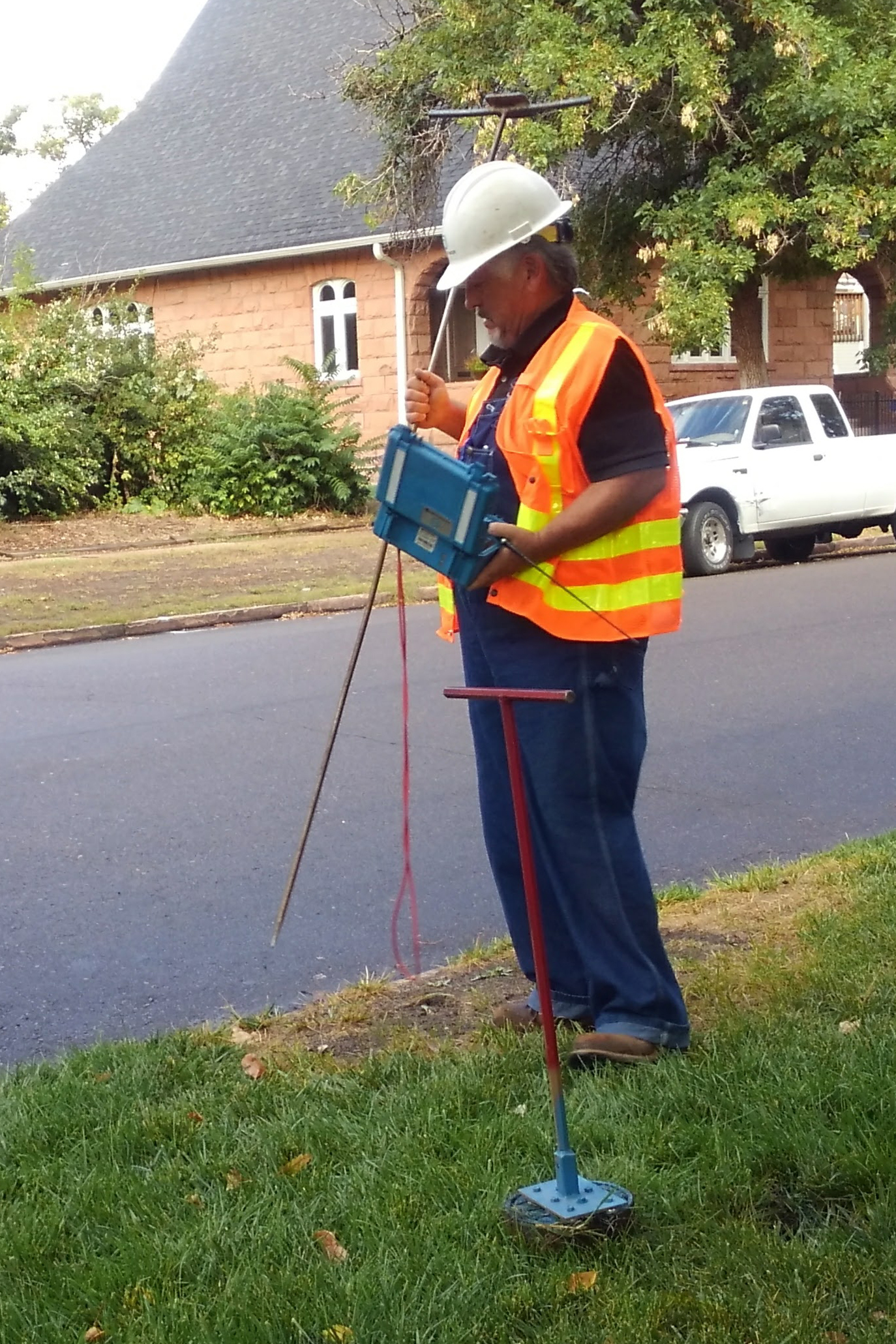
From Denver to Australia: The art of sensing leaks underground
Denverites love their four-legged friends, and so do we.
From how baby giraffes and polar bears use water at the Denver Zoo, to lending a hand to help save the frogs of Lake Titicaca, to settling the dog versus cat water-waste debate, we enjoy sharing stories about the special connection between our beloved animals and water.
So when we heard that a water utility in Australia has turned a few furry customers into employees, we were intrigued.
The Water Corporation in Northam, Australia is using specially trained dogs to detect water leaks — with their noses. Crikey!
These super-sniffers are used to detect chlorine, which may indicate drinking water leaking from an underground pipe.
Believe it or not, a similar team is used in Denver. But instead of relying on sophisticated canine olfactory senses, super-human hearing is used. Well, kind of.
Denver Water’s team of four leak detectors use state-of-the art technology to listen to the water flowing through 3,000 miles of underground pipes to determine if there are any leaks. That’s right — listening for leaks.
Since 2012, nearly 500 underground leaks have been detected, saving an estimated 138 million gallons of water. Finding these leaks early cuts down on expensive main breaks that could potentially lead to property damage and curtails hidden water waste.
Additionally, pinpointing the exact location of a leak limits construction costs and impacts to the road because excavation crews can be more exact when digging down to repair a pipe break. Over the last five years, Denver Water has avoided $474,700 on unnecessary excavation costs.
Chris Garcia, who has worked in leak detection at Denver Water for 10 years, says that the evolution in technology has changed the leak-detection game.
“When I first started, we had to complete a lot of manual calculations and data correlations to locate the precise location of a leak. Today, we have new loggers that can provide those calculations automatically.”
Special devices are placed on pipes to gather audio data early in the morning when there is less ambient noise, like at 2 a.m. when traffic and water usage is at a minimum. Leak detection employees collect and analyze the data, and if a leak is indicated, the technician further investigates by listening to the water flowing through the pipe. The team then uses specialized equipment to pinpoint the exact leak location underground so it can be fixed before it becomes a real issue.
There are many factors that can create background noise, leading to false readings or incorrect data, like underground electrical lines. That’s where the super-human hearing comes in.
“Despite all of the technology, our ears are still our greatest assets when confirming the location of a leak,” Garcia said.
Denver’s leak detectors put their ears to work every day, surveying approximately 930 miles of pipe each year.
With ears finely tuned to locate the slightest sound variations that may indicate a leak, it’s a skill that takes lots of practice. This team is trained to recognize the slight nuances between the sounds of regular running water, ambient noise and the subtle sounds that may indicate a leak.
Leak detection is one way Denver Water is proactively maintaining a reliable water supply for 1.4 million people, and for Garcia, it’s what keeps him going each day.
“It’s like coming to work every day to complete a scavenger hunt — and the prizes are significant,” he said. “If we can discover a small leak before it becomes a larger problem, we not only save money and water, but potentially keep our customers from experiencing the inconveniences that a larger break brings, including property damage.”
For now, it doesn’t sound like Denver Water will be welcoming patrol pups to the leak detection team, but we’ll be keeping our ears open to hear how the Aussie K-9s do on the job. Good luck mates!


